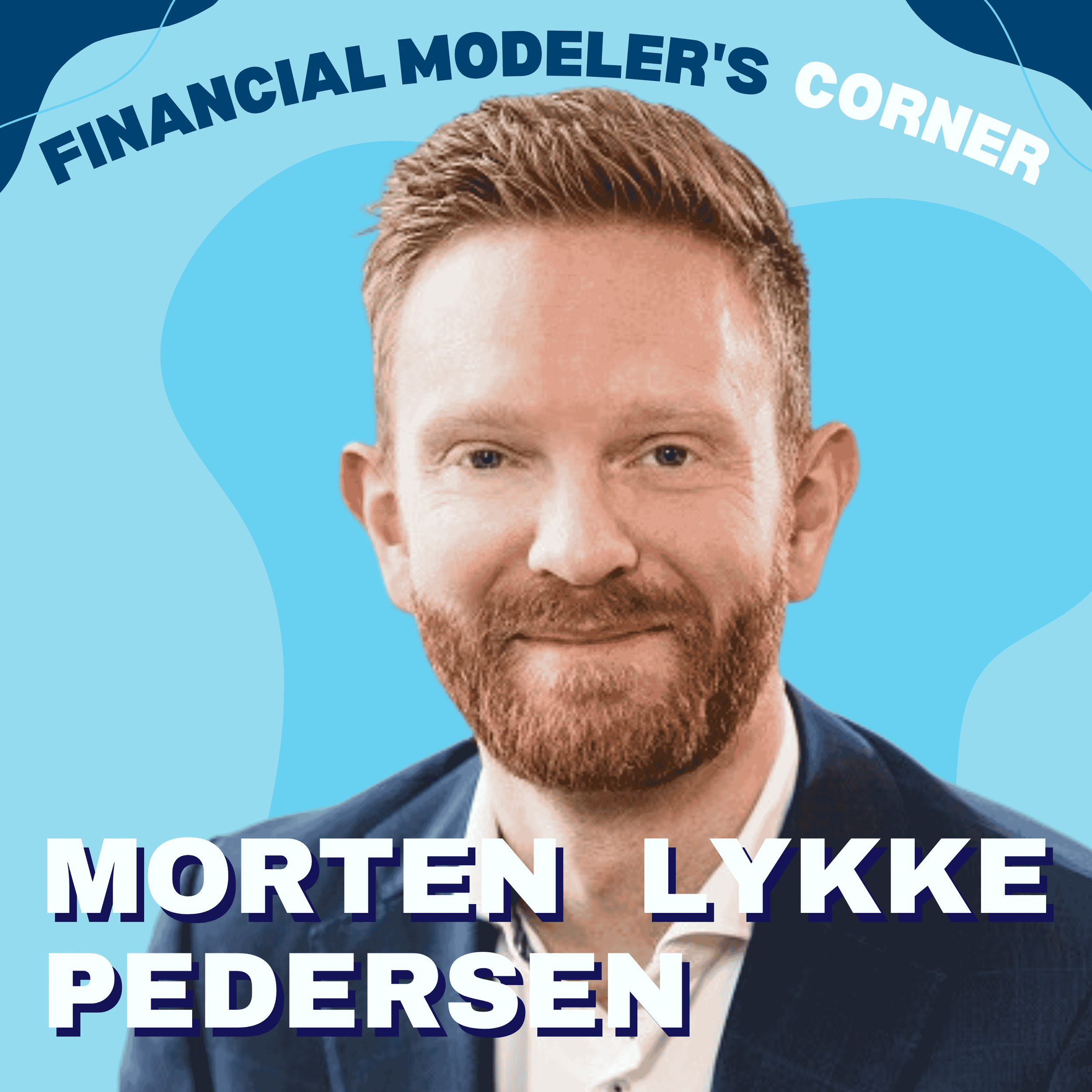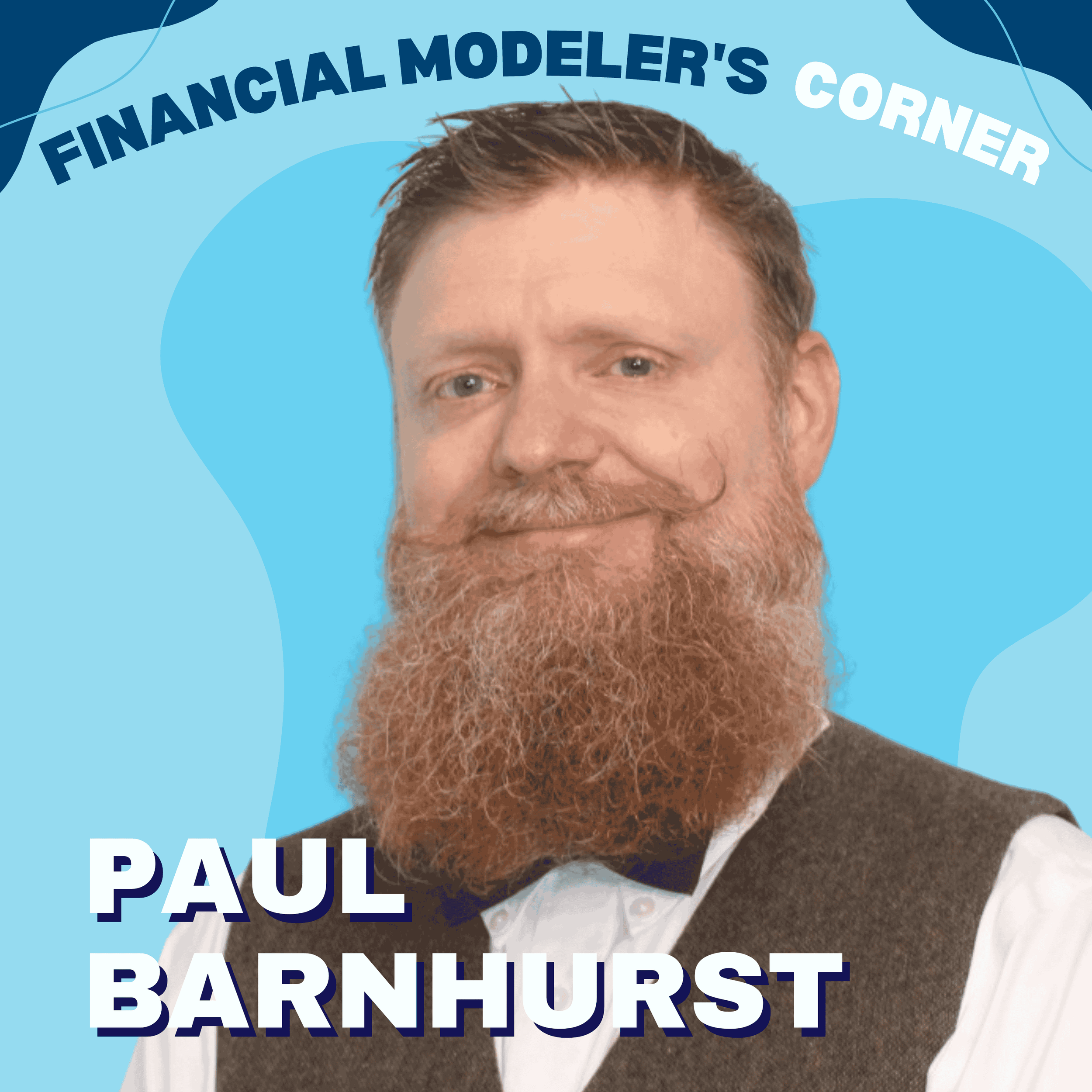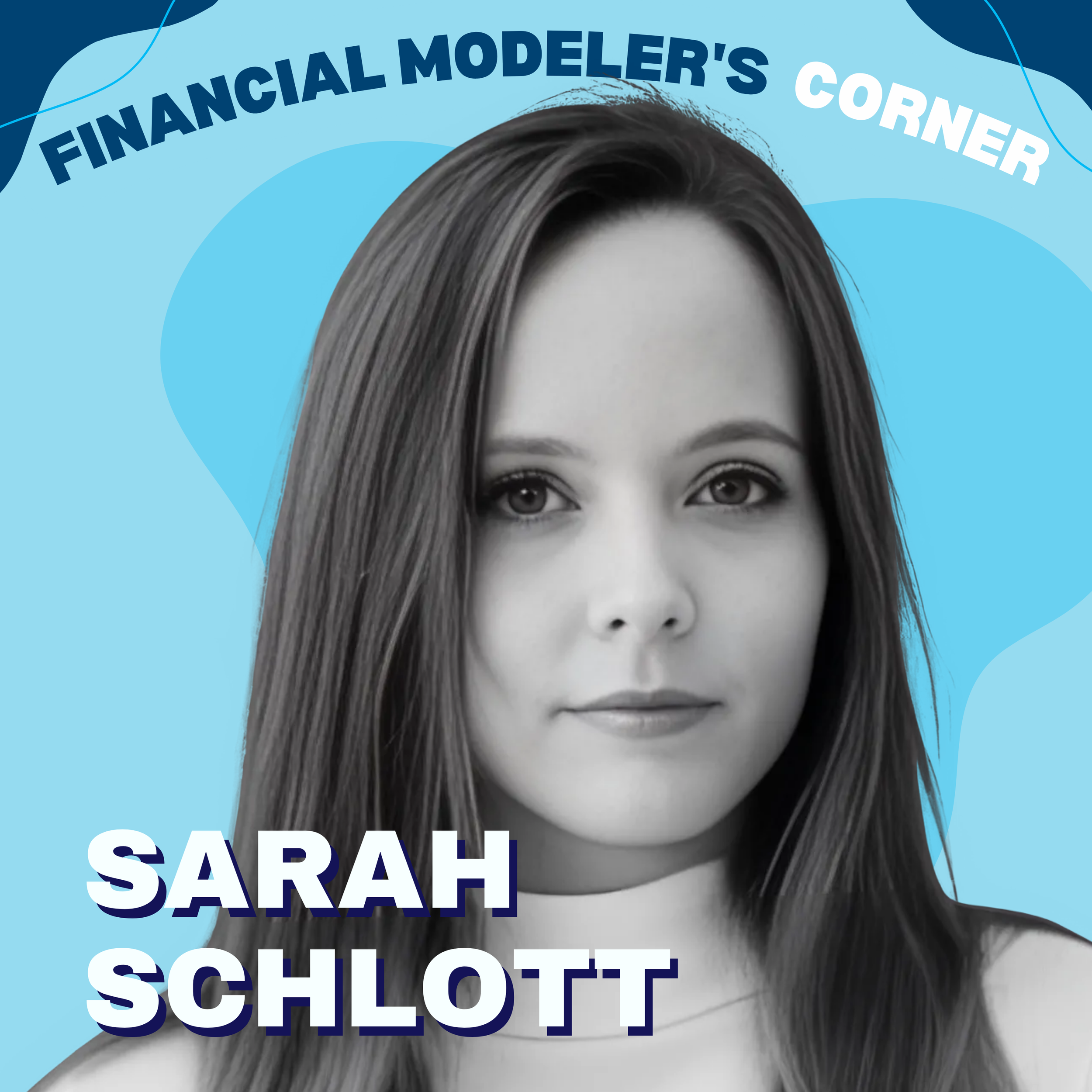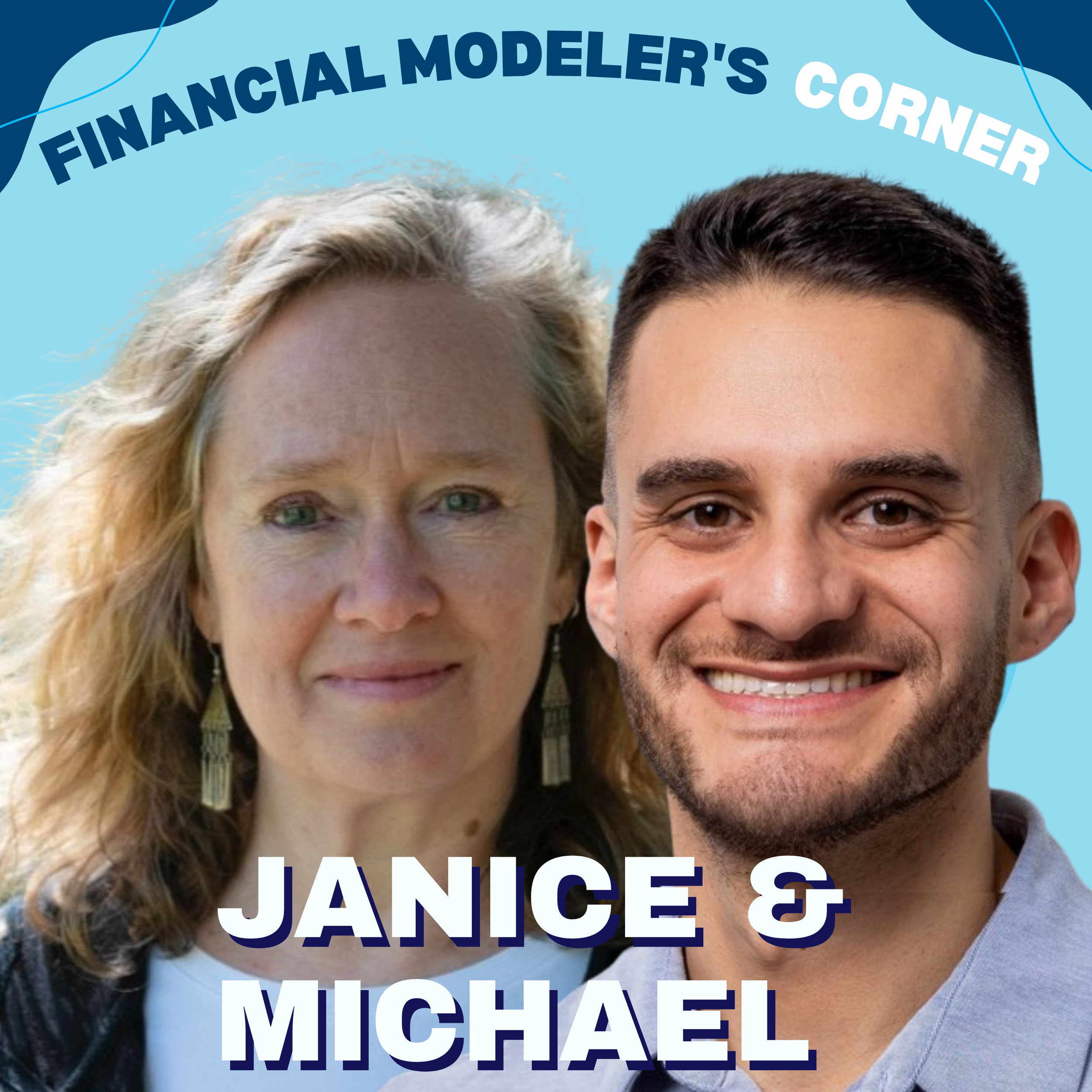Financial Modeler’s Corner Podcast
Deepen your knowledge of the Art and Science of Financial Modeling from distinguished Modeler's across the globe. Hosted by Paul Barnhurst, aka The FP&A Guy, this podcast is brought to you by Financial Modeling Institute (FMI), offering the most respected accreditation in financial modeling.

Elkar AI Put to the Test in Live Financial Modeling with Honest Results for Modellers - Ian & Giles
Expect to Learn
What Elkar gets right: speed, formatting, and a sleek interface
Where it breaks down: logic errors, disconnected assumptions, and unreliable outputs
How Elkar stacks up against other AI tools like TabAI and Agent
Why using AI without understanding modeling fundamentals can be dangerous
What it takes to turn a promising AI output into a reliable financial model

Testing Shortcut AI's bold claims: Did it live up to the hype with Giles Male
Expect to Learn
Where Shortcut impresses with formatting, speed, and usability
Where it fails, especially with modeling logic and financial accuracy
How Shortcut compares to Excel Agent and TabAI across key modeling tasks
Why reversing formatting to hide modeling errors is a huge red flag
What to consider when investing in premium AI tools for modeling

How TabAI stacks up as an Excel AI Agent for Financial Modeling Pros, with Ian and Giles
Expect to Learn
Where TabAI shines in helping analysts and where it needs improvement.
How does it compare to Excel Agent in terms of speed, usability, and accuracy?
Why finance pros still need to understand what’s going on under the hood.What to watch for when relying on tools that promise “done-for-you” modeling.

How AI Excel Tools Stackup Against the Hype and How Excel Agent Has Disrupted the Marketplace with Ian and Giles
In Episode 5 of The ModSquad on Financial Modeler’s Corner, Paul Barnhurst, Ian Schnoor, and Giles Male take a hard look at the changing landscape of financial modeling in the wake of Microsoft’s release of Excel Agent. Since launching at the end of September to coincide with Excel’s 40th birthday, Excel Agent has quickly changed the competitive dynamics for AI-powered modeling tools. The team explores the implications: how Excel Agent’s capabilities compare to other tools, why third-party platforms are shutting down, and what all this means for the future of work in modeling-heavy industries like investment banking.
Expect to Learn
Why Excel Agent is pushing competing modeling tools like Rosie AI out of the market.
What makes Excel Agent a “magnifier” of both modeling skill and error.
How fast AI is evolving inside Excel and what that means for modelers today.
Why AI won’t reduce hours in finance, despite speeding up modeling work.
What OpenAI’s Project Mercury reveals about the next phase of automation in investment banking.

Testing The New Microsoft Excel Agent for Finance Pros with Ian and Giles
In this episode of The ModSquad on Financial Modeler's Corner, Paul Barnhurst, Ian Schnoor, and Giles Male explore Microsoft’s newly released Excel Agent, a beta tool designed to bring AI into Excel Online. The team compares its performance to Rosie AI, running both through a range of tasks, including formula building, audit reviews, and a full five-year model forecast. Along the way, they test the tools against real modeling challenges like the Excel Esports case and a creative custom case, "The Humble MVP." This isn’t just about flashy tech. It’s a deeper conversation on where AI can help, where it falls short, and why core financial modeling skills still matter.
Expect to Learn
What happened when Excel Agent tried to build a full five-year forecast model?
Why solid modeling skills still beat "one-click" AI hype.
Where AI tools succeed, and fail, in reviewing formulas and detecting issues.
Why you should never fully trust AI without understanding what it’s doing.

How Excel AI Agents Like Rosie Work for FP&A Tasks but Fail at Building Models with Giles and Ian
In this episode of the ModSquad series on Financial Modeler’s Corner, host Paul Barnhurst is joined by modeling experts Ian Schnoor and Giles Male to evaluate Rosie AI, a new tool that integrates with both Excel and Google Sheets. Together, they test its capabilities in building financial models, solving complex FP&A tasks, and performing real-world use cases. They push Rosie through a series of tests, from basic formula creation to building full three-statement models, and discuss where it excels, where it needs improvement, and its potential future in the world of financial modeling.
Expect to Learn
How Rosie AI performs in real-world financial modeling tasks
The strengths and weaknesses of Rosie in building models and formulas
Key insights into how AI tools are evolving in financial modeling
The importance of knowing how to validate AI-generated models
How Rosie compares with other AI tools and traditional financial modeling techniques

Testing Excel AI Software Tracelight on Excel Esports, Financial Modeling, and FP&A with Ian And Giles
Expect to Learn
How Tracelight performs across different financial modeling scenarios
The impact of LLM selection and prompt design on tool output
Where Tracelight excels, and where it falls short, in building models and running checks
How Excel eSports challenges expose strengths and weaknesses in formula logic
When these tools can save time, and when they create more work

Introducing the ModSquad: Testing AI Financial Modeling Tools, So You Don't Have To... with Ian and Giles.
Paul, Giles, and Ian bring decades of combined experience across FP&A, corporate finance, Excel training, and financial modeling accreditation. This introductory episode sets the tone for a candid, unscripted, and deeply analytical journey into the practical realities of AI in finance.
Expect to Learn
Why AI won't replace financial modelers, but will transform the way they work
How AI tools are being developed to serve finance professionals specifically
The importance of judgment, communication, and scoping in effective modeling
What The Mod Squad plans to test: from three-statement models to Excel esports
How to prepare your career for the AI revolution in modeling

Financial Modeling for Finance Pros to Fix Real-World Mistakes Using Balance Sheets - Scott Strachan
Scott Strachan is a Chartered Accountant and Chartered Financial Modeler who has worked across the UK, the Arabian Gulf, and now serves clients in Qatar and London. He has built and reviewed complex financial models for deals worth hundreds of millions of dollars, and now contributes to the Financial Modeling Institute as a content developer and exam writer. Scott is known for applying practical thinking to modeling and helping bridge the gap between theory and real-world execution.
Expect to Learn
Why annual models are often inappropriate for startups and small businesses
The difference between one-time-use models and those built for regular updates
How poor modeling leads to funding gaps and business failure
Why EBITDA can be misleading in deal evaluationHow preparing for the CFM exam can improve your modeling skills

Why Finance Students Must Learn Discipline Before AI Replaces Their Jobs with David Stangeland
David has been teaching at the University of Manitoba’s Asper School of Business since 1991. He has a PhD from the University of Alberta and is both a CPA and a CMA. His research focuses on corporate governance and performance and has been published in top finance journals. He’s co-authored two corporate finance textbooks and currently advises the school’s $2.8 million student-managed investment fund.
Expect to Learn
The most common mistakes students make when building models
How Excel helps students better understand what they're doing
Why structure and layout matter in a financial model
The importance of combining modeling with real-world context
How the FMI curriculum is used in teaching valuation and asset management

From Classic Cars to Aircraft: The Art of Modeling Distressed Companies with Vaughan Grandin
Vaughan Grandin is the Managing Director and Head of Financial Modelling at Teneo in London. He is a Chartered Accountant with the South African Institute of Chartered Accountants and has more than 20 years of experience in corporate advisory, finance, and restructuring. He leads Teneo’s financial modelling team, which supports clients and other advisory teams by creating reliable models for distressed companies, transactions, and stakeholder analysis.
Disclaimer: All examples and stories shared in this video are from Vaughan Grandin’s previous roles and do not reflect his current employer.
Expect to Learn
Why empathy matters in financial modeling
How to approach modeling in distressed situations
The role of entity priority models and circular references
Key principles for building robust financial models
Lessons from real-world modeling cases across industries

Why Spreadsheets Will Stay, but Financial Modeling Workflow and Version Control Must Be Rebuilt with Matt Lee
Matt is the Co-Founder and CEO of Nummo, an AI co-pilot for financial modeling that he wished he had during his time in finance. Before Nummo, Matt worked as an investment banker at Lazard, helping to execute sell-side and buy-side M&A deals totaling around $6 billion in enterprise value. He also served as CFO at a digital product studio, overseeing financial planning for emerging tech products launched by Fortune 500 firms and early-stage ventures. With over 40,000 hours in Excel, Matt built Nummo to deliver a banker-grade modeling platform that runs fully on-device, maintains cell-level accuracy, and automates workflows like DCFs, LBOs, comps, and fairness opinions.
Expect to Learn
Why financial models still need human input
Where tools like Nummo can improve modeling workflows
Why version control and hidden hard codes cause major issues
How to balance automation with accuracy and narrative
Why it’s critical to never outsource your understanding of a model

How Finance Modelers and Professionals Align Stakeholders and Support M&A Success with Morten
Morten Lykke Pedersen, CFA, CFM, is a financial expert with over a decade of experience. He specializes in mergers and acquisitions (M&A), providing strategic insights that empower businesses to optimize their strategies through forecasting and risk assessment. Morten's career spans notable roles, including his tenure at PwC, where he managed valuation and modeling services. At Deloitte, Morten is dedicated to guiding businesses through complex transactions and strategic initiatives, helping them navigate industry dynamics and execute transformative transactions successfully. He holds a CFA charter and certifications in financial modeling, and his educational journey includes advanced degrees from Aarhus University, Saint Mary’s University, and the CFA Institute.
Expect to Learn
The critical role of collaboration in transaction modeling
How to build financial models that communicate a company’s story and manage risk
The importance of scenario analysis in M&A transactions
Why financial models should reflect business realities, not just numbers
How formal training programs, like the Chartered Financial Modeler (CFM), can elevate modeling skills and team capabilities

The 40th Anniversary of Excel: Unlocking the fascinating History, Easter Eggs, Excel humor, and more
In this episode of Financial Modeler's Corner, host Paul Barnhurst celebrates the 40th anniversary of Microsoft Excel, a tool that has revolutionized the financial modeling industry and many others. Paul explores Excel’s fascinating history, its evolution over four decades, and shares interesting facts, hidden Easter eggs, and fun surprises that Excel enthusiasts will appreciate. From the first graphical interface to modern-day features like dynamic arrays, this episode showcases how Excel has shaped the way we work and how it continues to be an essential tool for financial modelers.
Expect to Learn
The fascinating origin story of Excel and its early days on the Mac.
Fun facts about Excel’s features, including its secret limitations and quirky surprises.
Excel's functionality has evolved over the years to include over 500 functions.
Hidden Easter eggs and games that were embedded in older versions of Excel.
Creative and unique Excel projects, including games and pixel art, showcase the limitless possibilities within Excel.

How FP&A Teams Turn Confusing Budgets into Strategic Tools That Drive Alignment with Sarah Schlott
Sarah Schlott is a strategic finance leader with over 18 years of experience guiding companies through growth, M&A, and operational change. She’s worked across corporate finance, forecasting, budgeting, and reporting infrastructure. Sarah is the founder of The Schlott Company, where she helps founders bring order to financial chaos. Her approach blends classic FP&A with modern tools and a deep understanding of real-world business dynamics. She believes finance should bring clarity, not confusion.
Expect to Learn
Why overly complex models usually create more confusion than insight
What it means to be “battle-tested” as a finance leader
How to build models that reflect business reality, not just spreadsheets
What to do when the data is unreliable or inconsistent
Why involving department heads early leads to better models and better outcomes

An AI Excel Tool for Finance Teams to Speed Up DCFs and Scenario Modelling with Nico Christie
Nico Christie is the co-founder of Fundamental Research Labs and the CEO of Shortcut, a cutting-edge AI tool designed to supercharge Excel. Nico’s diverse background spans professional athletics, corporate finance, and AI research. His work at Fundamental Research Labs focuses on building AI that mimics human-like qualities, such as emotional experiences and consciousness. Nico has a passion for both technology and the real-world applications of AI in tools like Excel, making complex tasks faster and more intuitive.
Expect to Learn
How Shortcut is revolutionizing Excel for financial modeling with AI.
The process behind building digital humans at Fundamental Research Labs.
Nico’s journey from professional dunker to AI innovator.
How AI tools like Shortcut are transforming the financial modeling landscape.
Insights on the future of AI in Excel and the response from companies like Microsoft.

The Truth About Project Finance for Modelers to Avoid Complexity & Build Impact with Patrick Daguet
Patrick is the President of Sharklets, a training company specializing in CFA, FRM, and CAIA prep, and a Senior Professor at IÉSEG School of Management. With a background in structured finance, infrastructure projects, and model design, he bridges academic rigor with practical experience.He has helped train thousands of finance professionals across the globe and continues to lead CFM study groups. Patrick’s love for teaching is matched by his real-world expertise, having worked on major infrastructure deals, including France’s national stadium.
Expect to Learn
Why financial models should be treated as decision-making tools, not just math.
What makes project finance models more complex than corporate ones.
The real-world impact of financial models, from runways to stadiums.
How teaching has shaped Patrick’s understanding of modeling.
Why lifelong curiosity is the key to staying relevant in finance.

How Financial Modelers Rely on Memorability, Not Accuracy, to Get Ahead in Excel with Finance Bro
Your Average Finance Bro is a renowned figure in the financial modeling world. He has built a reputation not just for his financial modeling skills but also for his humorous take on the profession. He's a self-proclaimed founder of Goldman Sachs, inventor of the discounted cash flow model, and someone who has been involved in some of the most memorable (and fictional) moments in finance history. Finance Bro brings a fun and unconventional approach to the world of finance, often blending humor with expert insights.
Expect to Learn
The importance of memorability in financial modeling and how it can impact your career.
Why Excel continues to dominate financial modeling and how Finance Bro contributed to its popularity.
The lighter side of financial modeling, including hilarious pranks and Excel jokes.
How to present financial models with confidence, even if the numbers are questionable.
The essential skills and mindset needed for financial modelers to stand out, especially in high-pressure situations.

How Students Master Financial Modeling and Bridge the CFA Practical Skills Gap with Stephen Horan
Dr. Stephen is a finance professor at UNC Wilmington and former Managing Director at the CFA Institute. He has over 30 years of experience in academia and industry, has authored award-winning research, and co-wrote Strategic Value Investing, featured on Warren Buffett’s reading list. His work bridges theory and practice in finance education. Dr. Horan is also a sought-after speaker and serves on editorial boards for leading finance journals.
Expect to Learn
What makes a model readable and useful and why fundamentals matter.
How to teach financial modeling in a way that’s active and practical.
The difference between book knowledge and real-world application in finance.
Insights into CFA Institute’s evolution toward practical skills and global relevance.
The mindset and skills students need to transition from learning to doing.

Building a Practical Financial Modeling Course for students focused on sustainability with Michael & Janice
Janice is a systems entrepreneur and finance educator with over 30 years of experience. She has worked with both for-profit and nonprofit ventures, focusing on democratic access to capital and economic justice. Janice is also the author of Moving Mountains and teaches finance at Bard’s MBA in Sustainability program. Michael transitioned from the fitness industry into sustainable finance. With an MBA in Impact Finance from Bard, he co-developed and co-taught a financial modeling course that incorporates ESG data and sustainability into traditional financial analysis. Michael is passionate about inclusive, community-driven investment strategies and financial education.
Expect to Learn
What makes a financial model “fit for purpose”, and why complexity isn’t always better.
How financial modeling can support sustainability and social impact.
Tips for teaching finance to non-finance students and building curriculum from the ground up.
The importance of scenario and sensitivity analysis in forecasting.
Practical insights on bridging theory and hands-on financial modeling in academia.
